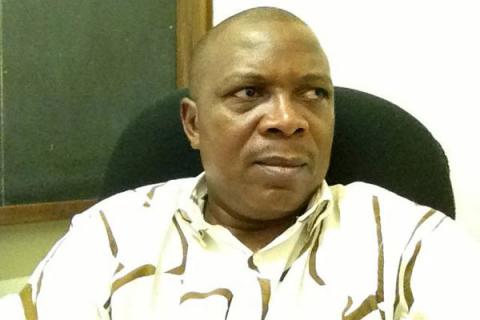How Culture of Silence Promotes Sexual Harassment
 Submitted by jbimokola on
Submitted by jbimokola on

Two significant issues are emerging from a report of the committee set up by Makerere University to investigate allegations of sexual harassment at the campus.
Some female lecturers at Makerere University say they are among those who have suffered sexual harassment at the hands of students, even though the main focus has been on male members of staff and female students.
The female lecturers say they are reluctant to name the perpetrators.
Similarly, some male members of staff say they have silently suffered harassment at the hands of their female colleagues.
In June this year, a committee set up to investigate allegations of sexual harassment released its report indicating that many respondents, “including female professors, reported having experienced sexual harassment but availed the information on condition that they do not name the culprit.”
The report mentions fear of retribution among other factors that are perpetrating the vice of sexual harassment. It adds that victims fear to report because perpetrators are usually highly placed individuals that have connections to exact revenge on those who reported their misdeeds. “This fear protects the perpetrators who, aware of this culture, continue with their abusive conduct unabated,” continues the report.
Dianah Ahumuza, an assistant lecturer at the School of Law, confirms such scenarios saying that sometimes the harassment comes from students who enjoy high status in society.
“It is common especially from the high profile people in society who also attend our classes, but we fear exposing them since it can ruin their career,” says Ahumuza.
The report also reveals that males are silent sufferers of sexual harassment for they fear talking about it in Uganda’s patriarchal society because no one would take them seriously.
In the report, a young lecturer narrates his troubles with a senior female colleague who pestered him for a sexual relationship for two years. This, according to the report, made the young lecturer extremely uncomfortable “but he chose to keep quiet about it because of the shame and utter fear of not being taken seriously.”
Because of societal pressure, however, such cases go unreported.
A male lecturer at the College for Humanities and Social Sciences, who requested for anonymity, says that sexual harassment from his female colleagues is rampant.
“A lady begins confiding in you about her marital woes, and when you sympathize with her, she takes it a step ahead to constantly seduce you,” says the lecturer.
The report also points at fresh-year students as most vulnerable to sex predators, especially in their first week of orientation at the university. It also points out dark, unlit stretches around campus that act as favourable ground for sexual harassment.
The report is the work of a five-member committee headed by Prof Sylvia Tamale from the School of Law. It was appointed by the Vice Chancellor, Prof Barnabas Nawangwe, to probe issues of sexual harassment at Makerere University.
The probe came in at the time the university was receiving negative publicity over reports of sexual harassment. This year alone, two members of staff were caught in compromising positions with students.
Edward Kisuze, an assistant administrative assistant at the office of the Academic Registrar, was in April caught on camera in a compromising position with a female student in his office. He had allegedly promised the student better marks in exchange for sex.
Earlier in February, Dr Swizen Kyomuhendo, from the School of Social Sciences, was recorded on camera asking for sex from students in exchange for marks in an investigative story by NBS Television.
- 734 reads
